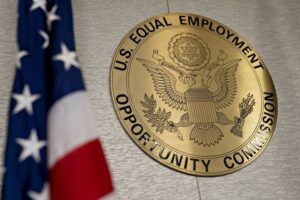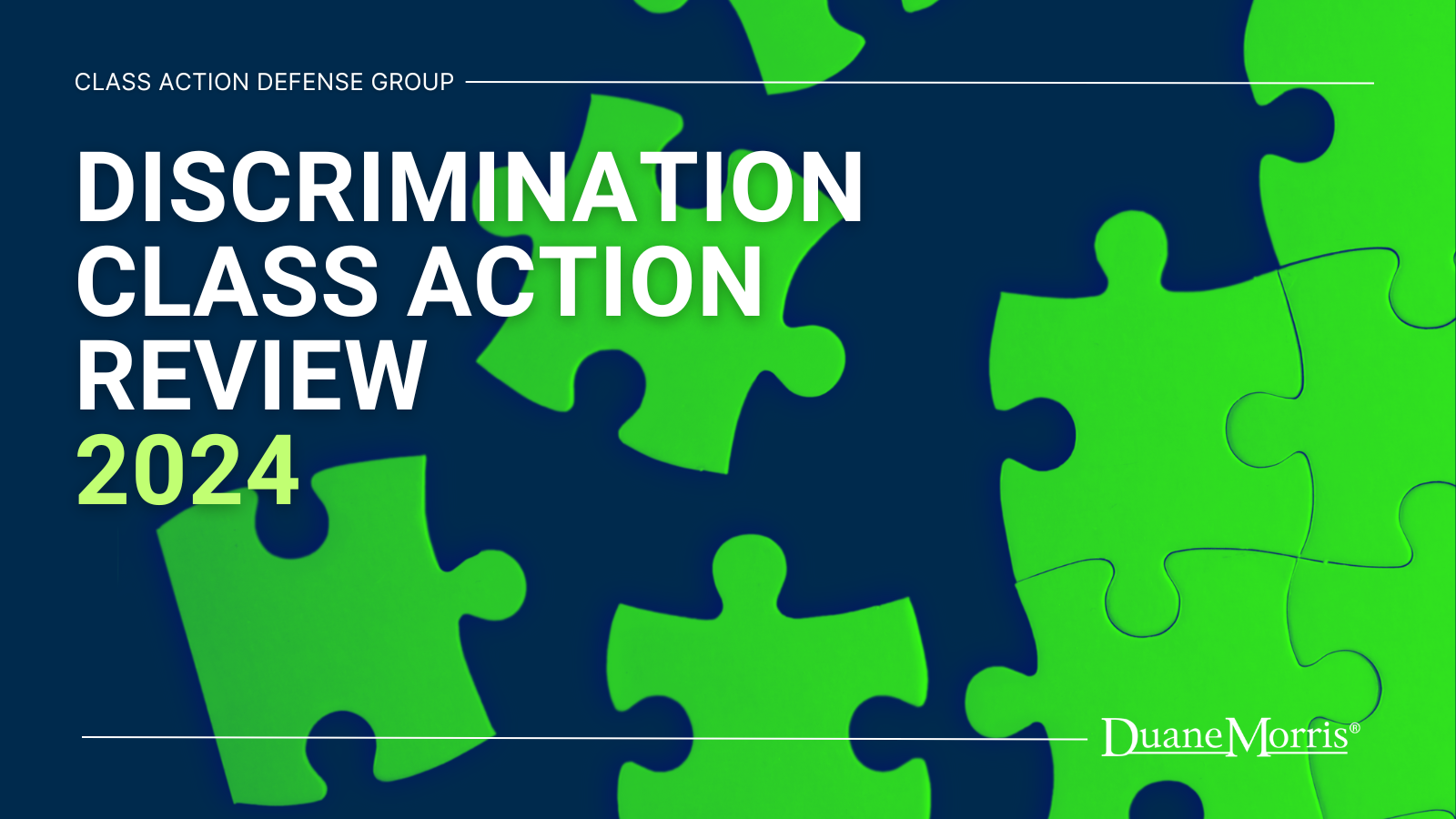 By Gerald L. Maatman, Jr., Alex W. Karasik, and Christian J. Palacios
By Gerald L. Maatman, Jr., Alex W. Karasik, and Christian J. Palacios
Duane Morris Takeaways: In EEOC v. Keystone RV Company, Case No. 3:22-CV-831 (N.D. Ind. Mar. 27, 2024), Judge Damon R. Leichty of the U.S. District Court for the Northern District of Indiana held that an employer was liable under the Americans with Disabilities Act (“ADA”) for failing to accommodate a former employee after the company terminated the worker for attendance issues stemming from his novel medical condition. This rare summary judgement victory in favor of the Commission illustrates the importance of employers engaging in an interactive process with their employees to provide them with reasonable accommodations under federal anti-discrimination laws, and the legal liability associated with non-compliance.
Background
The Charging party, Brandon Meeks, was diagnosed with cystinuria at the age of 19, a rare chronic illness that caused kidney stones to develop with irregular frequency. Roughly once every two years, he developed a large kidney stone that required surgical removal. In 2019 Meeks was hired as a painter at Keystone’s Wakarusa, Indiana plant, where he painted the base coat on RV wheels. Keystone had an attendance policy whereby it would terminate an employee who accrued seven “attendance points” (absences) within a year, and allowed an employee to miss up to three consecutive days from one doctor’s note and accrue just one attendance point without applying for an ADA accommodation. Id. at 2. According to the record, Mr. Meeks was a “diligent and hard worker,” but he accrued several attendance points for absences related to his medical condition, including a visit to his urologist, and treatment for kidney stone pain. Id.
On November 13, 2019, Meeks collapsed in a restroom due to excruciating pain. He was promptly rushed to the hospital and informed by a doctor that he had a “golf-ball-sized kidney stone” in his left kidney that would need to be surgically removed. Id. at 3. Meeks informed Keystone that he would require two weeks off of work to schedule and recover from surgery, which his employer agreed to given that Keystone’s Wakarusa plant closed down for several weeks from December to January and Meeks would only need a single day off of work. Prior to this request, Meeks had accrued 6 attendance points. Id. at 4. When Meeks returned to work on January 13, 2020, he informed Keystone he would need time off for another surgery scheduled on January 24, 2020. Meeks’ manager forecasted to him that he would be terminated if he missed work, and could reapply for employed 60 days later, per company policy. Id. According to the manager, Meeks did not provide a return to work date in connection with his second surgery request. According to Meeks, he knew he could likely return to work on January 27, 2020, but he never communicated this timeline to Keystone because his employer “never asked.” Id. After Meeks underwent his second surgery, on January 24, 2020, his mother drove him to the plant to pick up his paycheck, upon which he was sent to the corporate office and informed he was terminated due to his attendance points. Meeks subsequently filed a Charge with the EEOC. After its investigation, the EEOC brought suit on his behalf. On March 27, 2024, Judge Leichty granted summary judgement in favor of the Commission.
The District Court’s Ruling
Judge Leichty began his 19-page ruling by observing that this case illustrated one reason “why the ADA existed.” Id. at 1. Judge Leichty observed that “[n]o one can reasonably dispute that Mr. Meeks was a qualified individual with a disability. Keystone knew of the disability. And Keystone failed to accommodate the disability reasonably. A reasonable jury could not find otherwise on this record.” Id. at 7.
As the record reflected, the Court reasoned that Keystone clearly could have accommodated providing Meeks with two weeks leave, and yet it had not done so. The Court was unpersuaded by Keystone’s arguments that Meeks did not effectively communicate with his employer, and prior to his January surgery, he did not provide Keystone with an estimated return date. Rather, the Court determined that Keystone had an affirmative obligation to initiate an interactive process with its employees, and had historical knowledge of Meeks’ disability; because of this, the fault was theirs alone. Thus, “[a] reasonable jury could not lay the fault at Mr. Meeks’ feet,” and the Court granted summary judgement in the EEOC’s favor on ADA liability. Id. at 10-11.
Judge Leichty scheduled a trial at a later date to assess the question of damages, as factual disputes remained regarding Meeks’ reasonable diligence at finding comparable employment.
Implications For Employers
As the ruling in EEOC v. Keystone RV Company illustrates, it is imperative that employers engage in an interactive process with employees with respect to disability accommodations, provided the employer has reason to know of the employee’s disability. Significantly, a formal ADA request is not necessary on the part of the employee for a court to find an employer at fault for a breakdown of the interactive process. Because of this, employers should have robust policies in place to proactively provide their employees with reasonable accommodations for their disabilities. To do otherwise risks receiving a pre-liability judgement in favor of a federal, state, or municipal regulatory agency tasked with enforcing anti-discrimination legislation.









